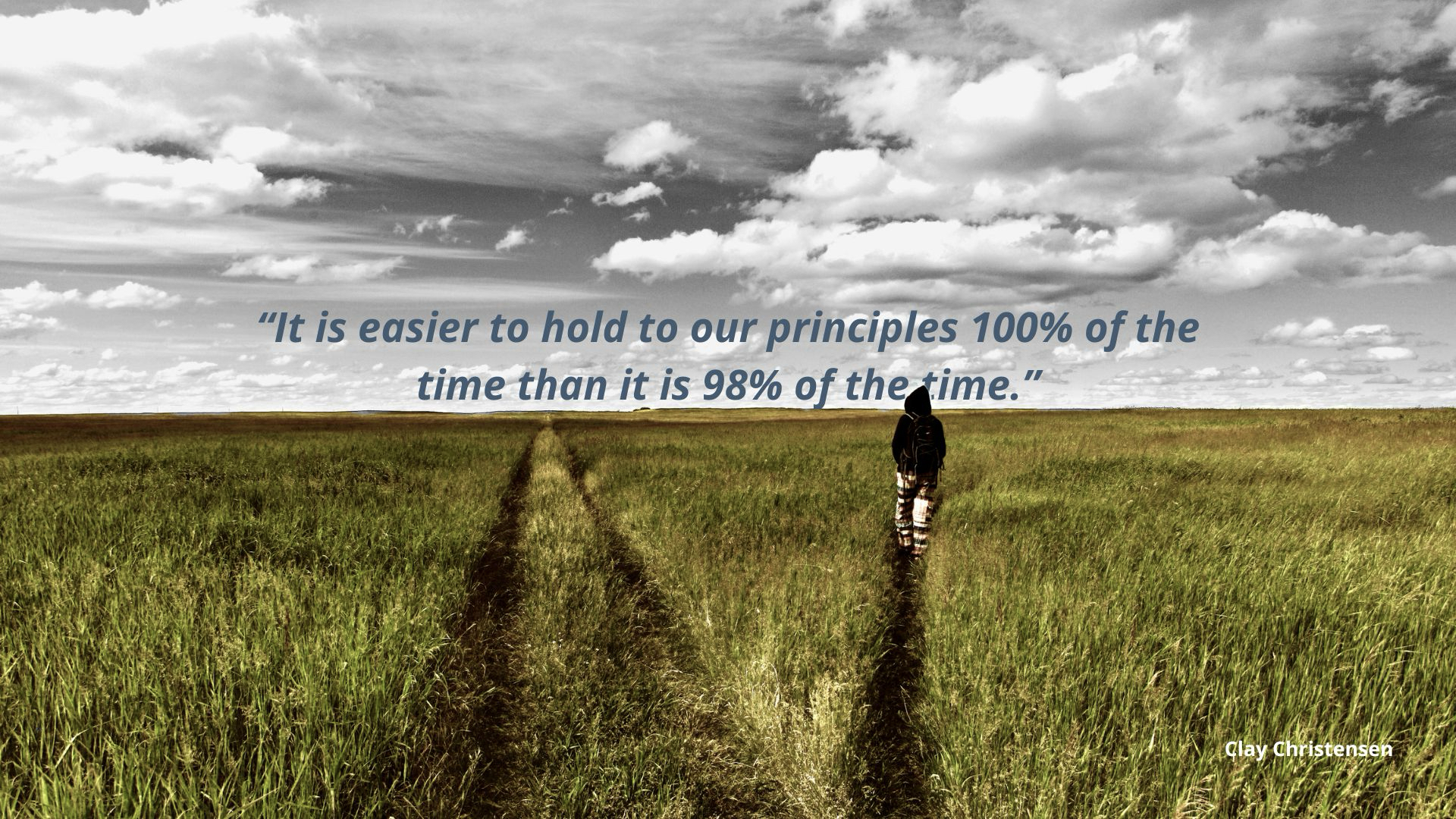The Extra Mile Blog
Compromise or Conviction
35,000 Decisions and the Principles to Guide Them
35,000. That’s the estimated number of decisions we make in a day, according to the Harvard Business Review. Some decisions are complex or memorable– “what do I say, do I tell them the truth?”. Many feel insignificant or easy– “do I touch the line or am I close enough?”. Yet, as James Clear writes, “every action you take is a vote for the type of person you wish to become.”
Guiding Principles
Through judgment, experience, or trial and error, we have refined a certain set of principles we strive to follow; principles that make life easier and a bit less complicated when we do. Organizations and teams adopt these principles as values or non-negotiables for the same reason: to help people make the “right” decisions.
Clarity and Conviction
Being true to your principles–and in turn yourself, your team, and your organization–requires two things:

- Clarity – Defining what your principles are and what they actually look like in action.
- Conviction – A deep-rooted belief in those principles and the discipline to follow them, even when inconvenient.
Clay Christensen, Harvard Business Professor and consultant, explains: “It is easier to stick to your principles 100% of the time than it is 98% of the time.” While 98% sounds disciplined, it actually leaves room for hesitation, doubt, and justification. The 2% becomes a slippery slope–one small compromise leading to another, gradually eroding your principles until they are no longer clear or deeply held.
Compromise or Conviction
Clarity and conviction in your principles isn’t a rigid way of operating; it’s an opportunity to make the right decisions before you’re in the moment, faced with external pressures that make compromise feel convenient or enticing.
